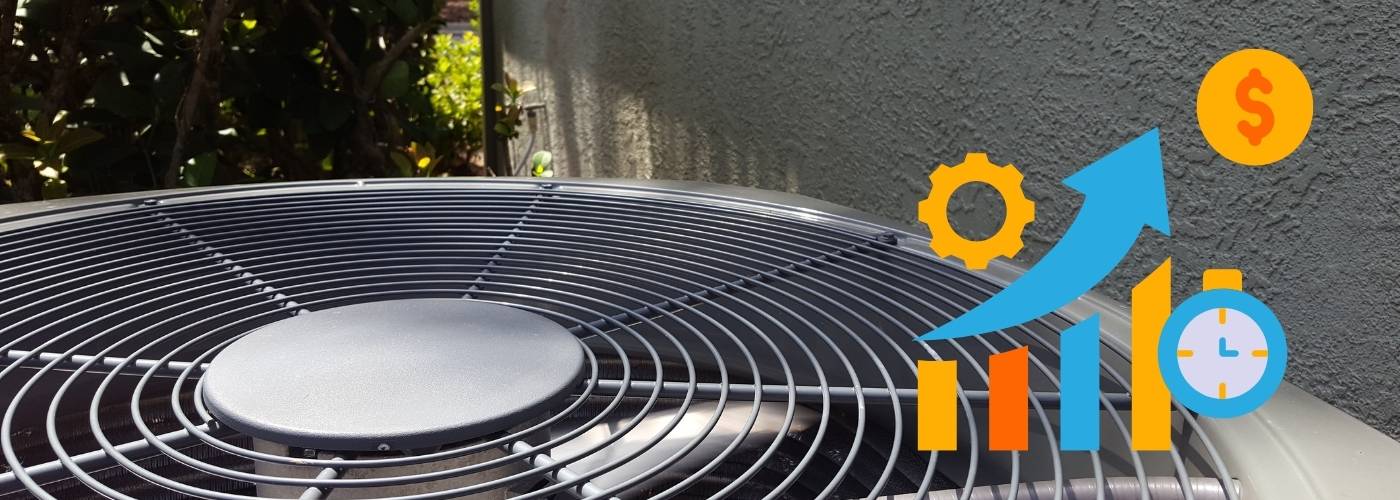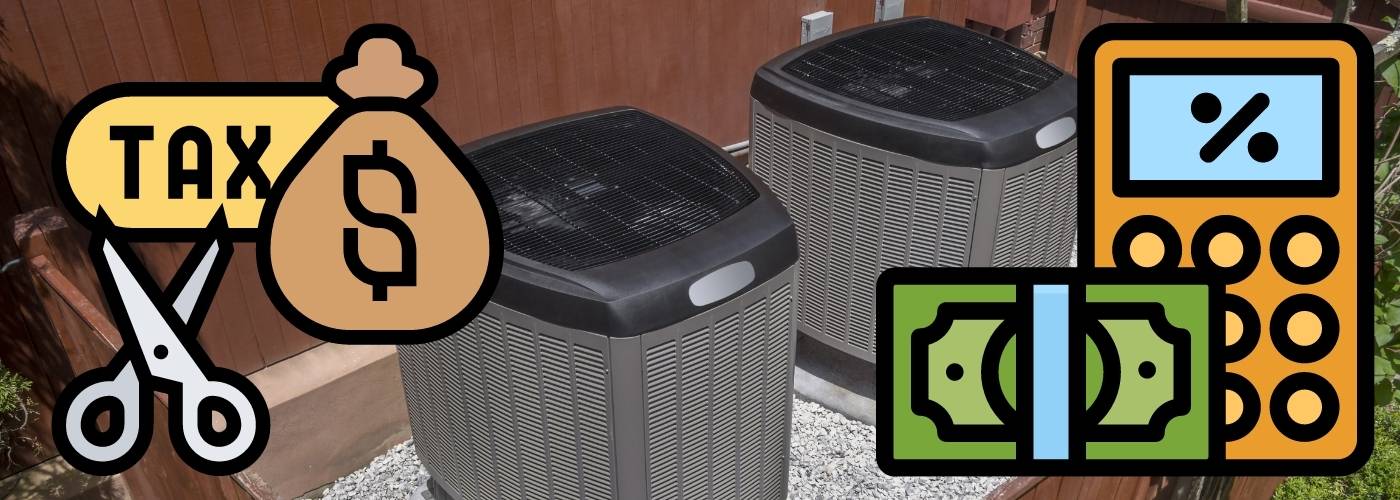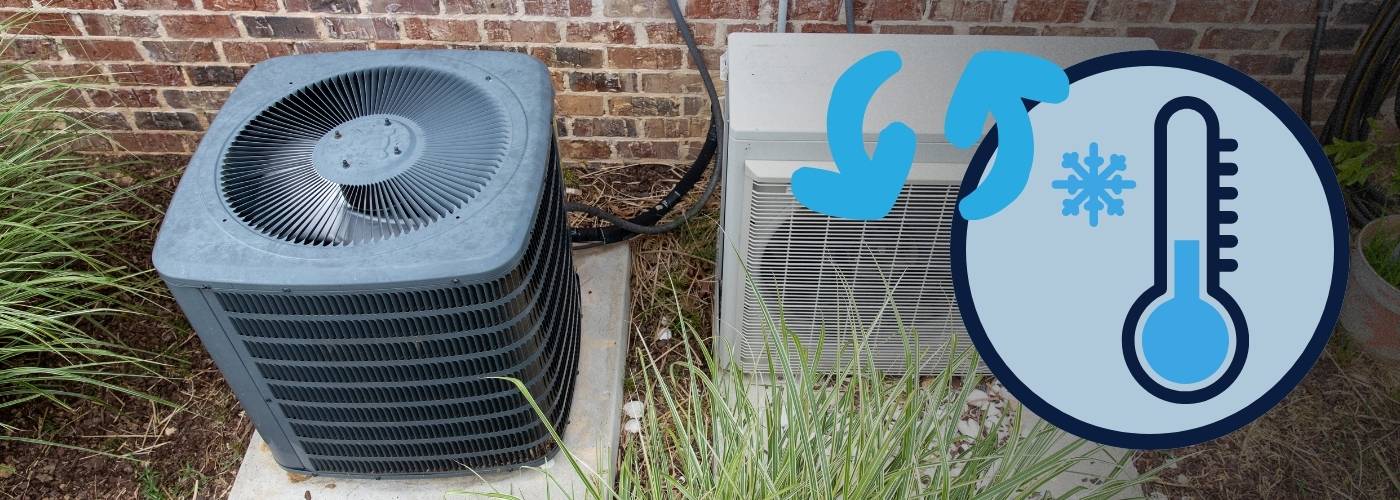Homeowners need to take extra precautions in order to maximize the efficiency of their HVAC system. With rising energy costs, it is important to ensure that your home’s heating and cooling systems are functioning at their best in order to save money. In this blog, we will provide you with tips for maximizing your home’s HVAC efficiency.
How To Make Your HVAC More Efficient
Making your HVAC system more efficient can help you save money and energy, while also ensuring that you are comfortable in your home. There are many simple steps that you can take to make sure that your system is running at its best. The following tips will help you get the most out of your HVAC system and ensure it is working efficiently:
First, regular HVAC maintenance is key to keeping your system running efficiently. Have a professional inspect the unit every year and change the air filter monthly or as needed. This will improve airflow throughout the house, which will keep temperatures more consistent.

Second, make sure that all vents are open and clear from obstructions like furniture or drapes. It’s also important to seal any cracks around windows and doors to prevent air leaks from outside sources.
Is Energy Efficient HVAC Tax Deductible?
Is energy efficient HVAC tax deductible? This is a question many homeowners face when considering the cost of upgrades or repairs to their heating and cooling system. If you are looking for ways to save money on your taxes, then this is an important question to answer.
When it comes to energy efficiency, there may be some good news in terms of tax deductions. The U.S. government offers deductions for qualifying improvements made to your home that help reduce energy consumption and costs, including those related to HVAC systems.
In order to qualify for the deduction, however, certain requirements must be met such as installation costs that exceed a specific amount and must cover at least half the cost of any upgrades or repairs made in the same year.
Be sure to speak with a HVAC company to see what tax rebates or deductions your home may qualify for.
Can Replacing Chillers In HVAC’s Be More Energy Efficient?
The demand for energy efficiency is increasing as the cost of energy continues to rise. HVAC systems are a major source of energy consumption in commercial buildings, accounting for 30-50% of the total energy costs. Replacing chillers in an HVAC system can provide real savings and increase overall efficiency.
Chillers are responsible for cooling air that is used by building occupants. Inefficiencies in an outdated chiller system can lead to high electricity bills and expensive repairs.

With a new chiller, building owners can take advantage of modern technology that allows for increased efficiency and lower operating costs compared to older models. Additionally, replacing chillers with new models will help reduce maintenance costs due to improved performance over time and longer life expectancy than their predecessors.
Do High-Efficiency HVAC Filters Slow Airflow?
High efficiency HVAC filters are an important part of any home or business’s heating and cooling system. These filters help to remove airborne particles from the air, such as dust, mold, and other allergens. But many people wonder if these high-efficiency HVAC filters can slow down the air flow in their homes or businesses.
The answer is both yes and no. While it is true that high efficiency HVAC filters can reduce overall airflow, they also block more particulates from entering a space than standard air filters do.

That means they improve indoor air quality while still allowing adequate airflow. In general, the higher the MERV rating of a filter, the slower the air flow will be as more particles are trapped in the filter material itself.
Choosing your air filter is one of the basic steps when getting routine air conditioner maintenance.
Frequently Asked Questions (FAQ)
Most homes benefit from professional HVAC maintenance at least once a year, ideally before peak heating or cooling season. During a tune-up, a technician will clean components, check refrigerant levels, tighten connections, and replace air filters as needed. Regular service helps your system run more efficiently, lowers energy bills, and can prevent unexpected breakdowns.
Yes, many high-efficiency HVAC upgrades may qualify for federal, state, or local incentives, as well as utility company rebates. Programs often apply to qualifying equipment such as high-efficiency furnaces, heat pumps, central ACs, or upgraded controls. Because requirements change over time, it’s best to speak with your HVAC contractor or tax professional and review current rebate programs before scheduling an installation.
High-efficiency filters can slightly reduce airflow if they’re not matched properly to your system or if they’re allowed to get dirty. However, when you choose the right MERV rating for your equipment and change filters regularly, they can improve indoor air quality without significantly restricting airflow. Your HVAC technician can recommend a filter that balances clean air, strong airflow, and overall system efficiency.
